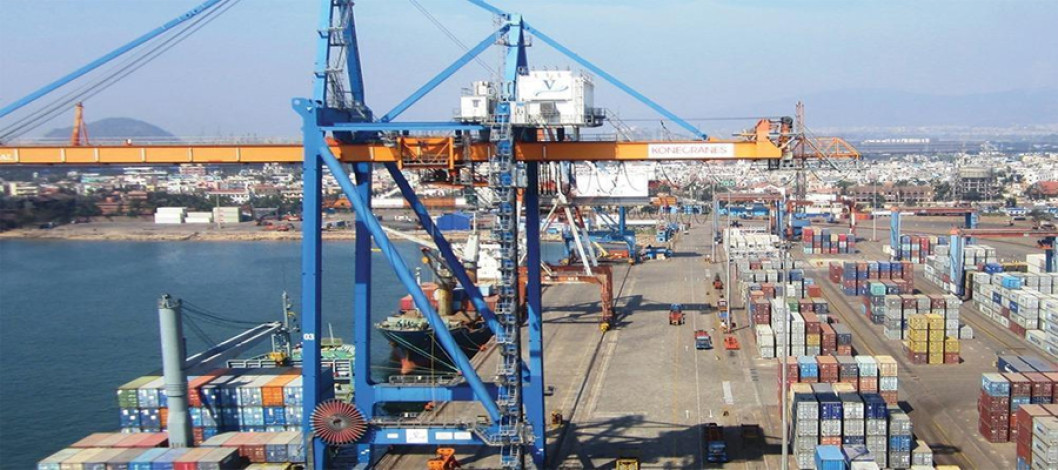
File Photo
Exports from the port of Kolkata, the gateway to eastern India, are facing several challenges, including geopolitical tensions, government-imposed rice export bans, and skyrocketing sea freight costs, which could slow down trade activities, officials said on Sunday (January 28, 2024). Major export items, such as engineering products, shrimp, and rice, have been affected in recent weeks, they said.
Freight charges, especially for West Coast destinations, have risen by 30-50 percent since December last year due to the escalating conflict in the Red Sea, they said.
Most of the major shipping liners are rerouting vessels around the Cape of Good Hope to avoid the Red Sea, causing significant delays of 14-20 days, one of the officials said.
Shipping through this alternative route resulted in higher freight and insurance costs, further squeezing exporters’ margins, he said
This sudden hike has disrupted cost structures and led to the temporary hold-up of several export consignments, he said.
Freight costs have soared to $400-500 per 20ft container and $600-700 for 40ft container shipments to the UK, Debojyoti Basu, vice-president of the Calcutta Customs House Agents’ Association, told PTI
Further hampering exports is due to the recent ban on white and broken rice and 20 percent export duty on parboiled rice by the government Kolkata port used to witness around 2,000 containers of parboiled rice exports, primarily to Southeast Asia, he said.
He also said soaring freight costs and administrative delays are squeezing profits and forcing some exporters to withhold orders. India’s export control removed 9 million metric tonnes of grain from the international market since August, significantly impacting global prices.
‘Our company’s overall rice export has decreased by more than 33 percent. This significant decline can be attributed to two factors. First, the total ban on non-basmati raw rice exports, a key product from West Bengal, has severely impacted our sales.
‘Second, the 20 percent export duty on non-basmati parboiled rice, coupled with increased transportation costs due to the Red Sea issue,’ said Suraj Agarwal director of Villa Group, a leading rice company
These have resulted in a loss of over $80 per tonne in the last 20 shipments, he claimed.
“This has made us uncompetitive and led to a 50 percent reduction in export orders and significantly narrowed our profit margins. The export business of non-basmati rice cannot sustain for long, if these factors do not change in the next 6 months,’ he said.
Engineering Export Promotion Council (EEPC) India former chairman Rakesh Shah said, The disruption in the Red Sea, a crucial global shipping lane, is driving up short-term container shipping rates and impacting timelines
“Shipping delays are jeopardizing adherence to Tariff Rate Quotas (TRQs) in Europe, potentially harming export opportunities,” he said.
The impact of the ongoing crisis around the Red Sea shipping route, which accounts for 50 percent of the country’s y’s exports and 30 percent of imports last fiscal, will vary depending on according to a report the industry. The Kolkata port authorities, however, claim that they haven’t observed any substantial impact on export volumes yet
Syama Prasad Mookerjee Port, Kolkata, chairman Rathendra Raman recently said the SMP anticipates just a 5 percent growth in traffic for the current fiscal year 2023-24 owing to geopolitical headwinds
He said the port may conclude the year with 68 million tonnes of cargo traffic.
In 2022-23, the Kolkata Dock System and Haldia Dock Complex achieved double-digit growth of 12.5 percent over the previous fiscal year, handling 65 66 million tonnes of cargo
Source: Online/GFMM
Comment Now